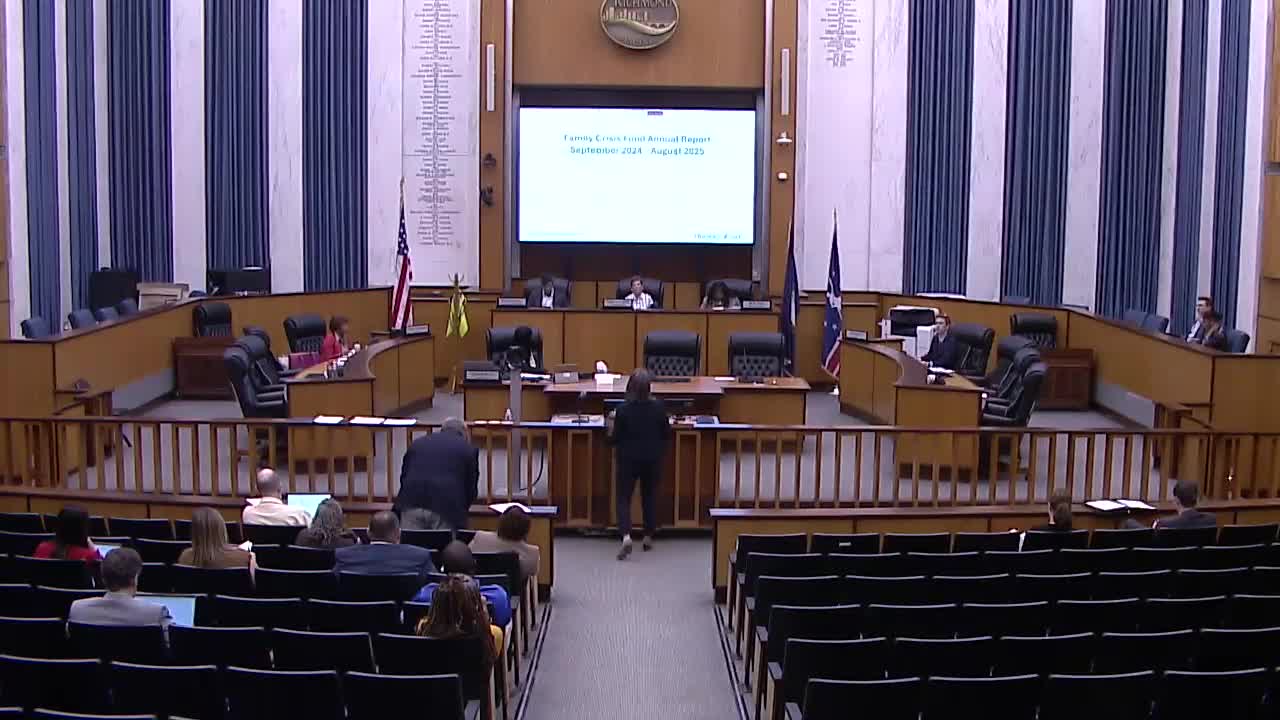Humankind reports $1.14 million distributed to Richmond families in last 12 months; housing payments dominate fund use
Get AI-powered insights, summaries, and transcripts
Subscribe
Summary
Humankind reported $1,140,000 in Family Crisis Fund payments to Richmond households from Sept. 2024–Aug. 2025, with housing and utilities the main uses and 656 clients served.
Stan Southworth, president and CEO of Presbyterian Homes and Family Services doing business as Humankind, presented the Family Crisis Fund annual report for the period Sept. 2024–Aug. 2025 and said the program distributed $1,140,000 during that 12-month cycle and more than $3 million since launching in 2023.
Southworth said Humankind serves as the fund’s fiscal agent and processes intakes from 14 community partner organizations; payments are made directly to vendors and creditors rather than to clients. He said 656 unique clients received assistance during the 12-month cycle and 303 unique vendors were paid; households served contained 669 children. He noted the program’s per-household maximum is $2,500 within any 365-day period.
Distribution patterns are heavily weighted toward housing and utilities: Southworth said a little over 70% of payment transactions were for housing and roughly 16% for utilities; together those categories account for the majority of funds disbursed.
Committee members asked about payment logistics and bottlenecks. Southworth said Humankind sometimes encounters vendors that are slow to complete W-9 paperwork required to receive payment but that the agency has generally resolved such issues. He described a process of issuing letters of commitment to landlords and utilities and making weekly check runs to assure vendors that funds are forthcoming when a household faces imminent eviction or shutoff.
The presenters discussed the city’s response during a recent water crisis, when Humankind issued emergency payments under an addendum to the fund’s standard operating procedure. Southworth said the water-related payments were made quickly and did not automatically bar recipients from later Family Crisis Fund assistance as long as a household’s total payments did not exceed the $2,500 cap within 365 days. He said deeper intake conversations during that period showed many applicants had multiple underlying financial problems beyond the water emergency.
Several committee members and partners urged stronger outreach and clearer branding. A city official and a partnering service provider said clients often do not recognize that a landlord payment or rent subsidy came via the Family Crisis Fund, leading to duplicate applications across agencies. The provider recommended creating a learning lab and basic training for case managers about eligibility, documentation, and program limits. The presenter and partners also raised the need for modest funding for follow‑up case management — described as “the secret sauce” — to improve long-term stability for families receiving one-time relief.
No formal action was required by the committee; presenters and council members agreed to pursue improved outreach and discussions about operational funding for partner case management.
